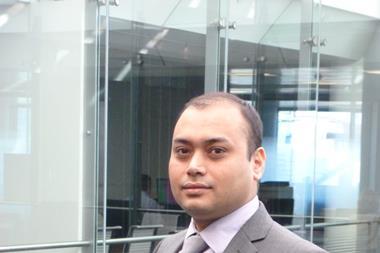As key healthcare risks grow, the ACCA warns that the integration of clinical, operational, and financial management is a critical step towards achieving enterprise risk management.
The healthcare sector faces unprecedented risks, from skills shortages and cybersecurity threats to economic pressures and the unintended consequences of AI technologies.
A new report by ACCA (the Association of Chartered Certified Accountants) underscores the growing recognition of the importance of a collaborative risk culture to navigate these complexities effectively.

The study of nearly 100 healthcare professionals from across the world, identified the integration of clinical, operational, and financial management as a critical step towards achieving enterprise risk management.
This alignment fosters better decision-making and enables healthcare organisations to deliver quality patient care – the common purpose shared across the sector.
Rachael Johnson, head of risk management and corporate governance for ACCA, said: ‘By collaborating and learning from each other, different departments in healthcare can meet shared objectives – of quality care, financial sustainability, and regulatory compliance – more effectively. They also crucially become better prepared for emerging threats and trends.’
Building a better risk culture
The report outlines key enablers of a strong risk culture, including effective communication, cooperative education, and a transparent environment.
It also emphasises cross-functional knowledge-sharing and ethical decision-making as essential practices for managing interconnected risks, from rising cybercrime and fraud to fast-changing workforce challenges.
“Old cultural attitudes viewed people who raised the profile of risk as admitting to failure and they were therefore subject to criticism or censure.”
But Mark Millar, past ACCA president and non-executive director at East Suffolk & North East Essex NHS Foundation Trust, warned against viewing risk management solely as a financial function.
He said: “Understand that risk in healthcare is far more than a financial issue. It is about life and death. Old cultural attitudes viewed people who raised the profile of risk as admitting to failure and they were therefore subject to criticism or censure.
“A more helpful culture is one that encourages the sharing of information willingly to address challenges and make improvements.”
The study also reveals regional nuances in risk priorities:
- Africa: Balancing the promise of telemedicine with infrastructure challenges and corruption risks.
- Canada: Addressing cybersecurity concerns while adapting to regulatory changes.
- UK: Striving for talent retention amidst rising living costs and advancing technology
- adoption.
- Caribbean: Managing climate-induced risks alongside workforce shortages.
- Ireland: Integrating clinical and enterprise risk management to overcome fragmented system.
What’s next?
The report, Risk Cultures in Healthcare: The Role of Accountancy highlights that while the specifics of risk differ by region, the universal need for collaboration and a shared understanding of risk remains critical.
It adds that as healthcare becomes increasingly complex, the role of accountancy professionals is pivotal. From promoting cross-departmental communication to embedding risk cultures, they can help to provide the financial insights and strategic frameworks necessary to achieve resilient and patient-centric systems.
The report is a call to action for the risk sector to break down silos and embrace a more cohesive approach to risk management.
It includes 11 action points for financial professionals:
- Financial professionals are central to translating the purpose into a common language across the organisation, but also distilling it, making sure their organisation edits down their essence to all fundamentals; otherwise, purpose will become misaligned and meaningless.
- Today’s supply chain risks require finance teams to take more practical actions in forging and negotiating new partnerships with suppliers, sharing risks and driving greater transparency across supplier agreements.
- Finance bosses should be visible and lead discussions on key issues, while also supporting structured engagement between chief medical officers, administrators, and finance teams that allow them to find common ground and collaborate towards shared goals.
- To build a supportive risk culture, finance must create the right metrics and KPIs through risk and performance management systems, using both quantitative and qualitative information.
- Accountants can foster trust and transparency, ensuring that whatever operational change that is driven by AI is debated, assessed and embraced responsibly.
- Accounting professionals are crucial in helping to establish and monitor a strong risk governance system that motivates employees to take calculated risks to achieve their goals.
- Accountancy professionals are key to communicating what is and what is not acceptable up and down the organisation, making sure the risk appetite is understood on all levels. As decisions around budgets influence the pace and quality of patient outcomes, it is also crucial for accountancy professionals to ensure that appropriate resource allocation is aligned with risk appetite.
- Boards must make tough decisions on where to invest scarce financial resources, as bolstering cybersecurity measures inevitably detracts from available funding for the prime objective of patient care. These are important judgement calls for financial leaders in assessing the relevant trade-offs and providing insightful scenario analysis on how much you spend versus all the damage from a cybersecurity attack.
- Finance teams should accept that fraud exists and take responsibility for implementing measures that actively look for it. They also can help by promoting more open, transparent cultures where concerns about all these acts are communicated cooperatively up and down the organisation.
- The profession can take a leading role in creating policies that promote a ‘just culture’ – one which is more accountable – and championing ethical decision-making that supports this.
- It is crucial that financial professionals become more aware of their surroundings and biases when determining the appropriate course of action, especially as AI inputs become increasingly relied on.











No comments yet